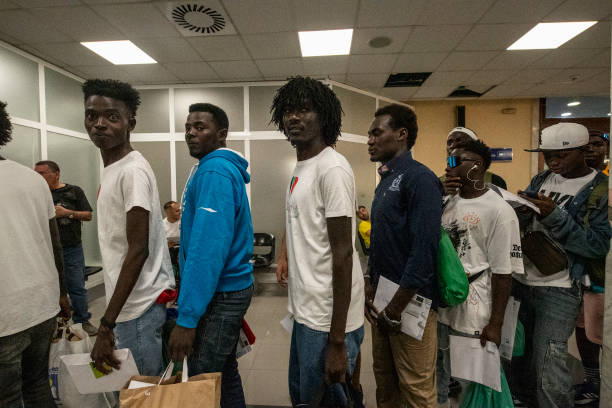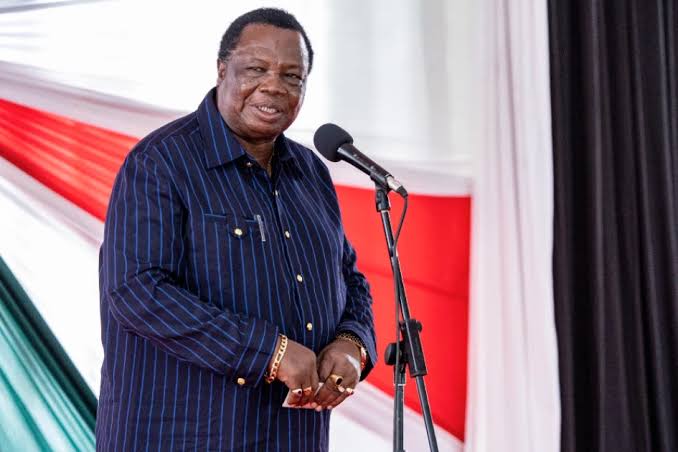COTU Denies Consultation on Housing Levy, Challenges PS Hinga's Claims

A significant dispute has erupted between the Central Organization of Trade Unions (COTU) Kenya, led by Secretary General Francis Atwoli, and the Principal Secretary for Housing and Urban Development, Charles Hinga, concerning the regulations governing the Affordable Housing scheme and the alleged diversion of its funds. President William Ruto, who has been visibly promoting the housing agenda with activities such as a reported handover of Affordable Housing units on Tuesday, May 20, 2025, and interactions with workers at the Affordable Housing Programme in Garissa on Thursday, February 6, 2025, is now central to this disagreement. Atwoli has called for the President's urgent intervention, particularly after COTU raised an alarm on Tuesday, June 3, over these issues, to ensure the housing levy serves its primary purpose.
COTU vehemently denies any involvement in the drafting or approval of the current Affordable Housing Act regulations. In statements, including one dated June 6, Francis Atwoli publicly challenged PS Hinga to produce concrete evidence, such as written resolutions, minutes, or official correspondence from COTU's Executive Board, to substantiate claims of the union's participation. Atwoli firmly stated that COTU's Executive Board, the sole body authorized to make such organizational decisions, never convened to deliberate or endorse these regulations, and that COTU was never formally or informally consulted during the development, review, or approval process.
Further clarifying its position, COTU asserted that the presence of its representative, Bro Emest Nadome, on the Affordable Housing Fund Board does not equate to an institutional endorsement from the union. Atwoli emphasized that an individual board member cannot act on behalf of COTU without express approval from its Executive Board. He added that Nadome himself had informed COTU's leadership that the union was indeed not consulted regarding the approval of the said regulations, calling Hinga's claims of COTU's involvement "dangerous and frankly dishonest."
A core grievance for COTU is the government's alleged plan to divert the Affordable Housing levy towards funding other infrastructure projects. Atwoli highlighted concerns that under the new regulations, these funds could "erroneously" be used for constructing health facilities, pre-primary and basic education centers, fire and police stations, social halls, markets, and open spaces, under the guise of "associated social infrastructure." He warned that if this trend persists, the levy might soon be redirected to larger projects like roads, dams, and other heavy expense projects, leaving workers exposed without the decent and affordable housing they were promised. This diversion, Atwoli argued, would also create redundancy as these amenities are often already budgeted for in the National Budget.
In response, Principal Secretary Charles Hinga, in statements around Friday, June 6, accused COTU of misleading Kenyans. Hinga maintained that COTU was indeed part of the team that formulated the Act and regulations, claiming they were "represented in person in committees" and had the "privilege of drafting the Act." He also stated that the original 2018 Act already provided for "houses, plus social and physical infrastructure that make settlements work," expressing surprise at COTU's denial.
The controversy appeared to intensify following President William Ruto's recent statement revealing plans to use the housing levy to build 260 markets across the country, alongside affordable housing projects. This announcement seems to be a key factor in the current standoff. Consequently, Atwoli, in a statement on Saturday, June 7, reiterated his appeal directly to President Ruto, urging him to intervene and ensure the Affordable Housing Levy remains exclusively dedicated to constructing affordable homes for Kenyans.
The ongoing dispute between COTU and the State Department of Housing highlights significant disagreements over stakeholder consultation and the appropriate use of the housing levy. With both sides accusing each other of perpetuating falsehoods, there's a potential crisis that Atwoli believes requires presidential intervention to safeguard the integrity and original goals of the Affordable Housing program for Kenyan workers.
You may also like...
In the Shadows of the Signal: How Africa is Fighting a War It Cannot See

The article discusses the growing threat of cyberattacks in Africa, likening it to a "quiet war" being waged through dig...
Beyond Fintech, A Continent on the Rise

Africa's tech landscape is rapidly diversifying beyond fintech. Discover how innovation in sectors like AI, health tech,...
Should Religion Still Dictate Morality in a Secular Age?

This bold essay unpacks the complex relationship between faith, law, and public life—exploring where religion uplifts mo...
Africa’s AI Moment: Are We Innovating or Just Consuming?

As AI reshapes Africa’s digital landscape, the continent stands at a crossroads: Will it lead innovation or remain a tes...
The Rise of AfroAnimation: How African Studios Are Telling Our Stories With Global Appeal
(26).jpeg)
African animation is breaking boundaries as studios across the continent craft vibrant, culturally-rooted stories with g...
Digital Dakar: Why Senegal Is Africa’s Next Fintech Capital

Senegal’s capital, Dakar, is emerging as Africa’s next fintech powerhouse, driven by mobile money innovations, a youthfu...
The Global South Doesn’t Need a Savior: It Needs Equity

This incisive essay dismantles the outdated saviour complex, calling for a bold shift from patronising charity to genuin...
The Strangers Next Door: A New Dilemma at Africa’s Threshold

The article discusses the deportation of African nationals by the United States to eSwatini, a small southern African ki...



